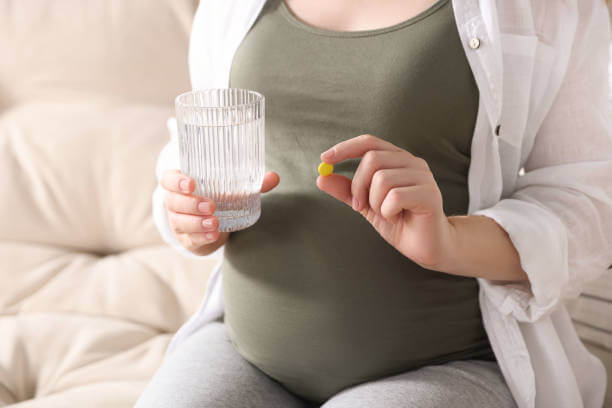The postpartum phase is wild—emotionally, physically, and yes, hormonally. It’s like your body just ran a marathon while hosting a party and moving to a new house all at once.
While self-care feels like a luxury when you’re running on two hours of sleep, there’s one thing you can control: what you put in your body.
The right supplements can help you feel like yourself again—or at least some version of “you” that can juggle late-night feedings and still have energy left to text a friend. Let’s dive into what really matters for postpartum wellness.
Postpartum Nutrition Isn’t Just About Baby
First off, let’s clear something up: taking care of yourself isn’t selfish. Your body just spent months growing another human, and now it’s on the clock 24/7 keeping that little one fed, comforted, and alive. But here’s the thing—your needs don’t just pause because you’ve got a tiny roommate.
Postpartum supplements aren’t about filling a baby-related “void.” They’re about giving your body the tools to thrive—balancing hormones, boosting energy, and keeping those postpartum mood swings from knocking you sideways. You might already be on prenatal vitamins, and while those are a good start, your body’s demands have shifted.
Think iron to combat blood loss, omega-3s for brain health, and magnesium to support muscle recovery (because let’s be real: labor isn’t just exhausting; it’s basically an endurance sport).
The Secret for Postpartum Hair
Postpartum hair loss is a thing. And it’s not fun. Somewhere between four and six months postpartum, you’ll probably notice enough strands on your pillow to knit a sweater. Blame the hormonal rollercoaster—specifically, the sudden drop in estrogen levels after birth.
This is where biotin supplements are a must because they help strengthen your hair from the inside out. Pair it with a balanced intake of zinc and collagen for maximum results.
Biotin isn’t just about vanity, either; it’s about feeling like yourself again, about reclaiming the parts of your identity that sometimes get lost in the chaos of new motherhood. Strong, healthy hair is a tangible reminder that you’re more than just a milk machine—you’re still you.
Gut Health Isn’t Just a Trend
If you’ve been anywhere near Instagram lately, you’ve seen the probiotic hype. But gut health is more than a buzzword; it’s the foundation of everything from digestion to immunity to mental clarity. And postpartum, your gut is likely screaming for attention.
Pregnancy and childbirth can throw your microbiome out of whack, especially if you’ve had a C-section or antibiotics during delivery. Probiotics and prebiotics work together to restore balance, helping with bloating, digestion, and even mood. Yes, your gut and brain are BFFs—so optimizing your healthy lifestyle by taking care of one inevitably benefits the other.
Postpartum Energy Is a Different Kind of Energy
Let’s talk about energy, or the lack of it. Postpartum exhaustion is in a league of its own. Even if your baby starts sleeping through the night (lucky you!), your body is still recovering from months of physical strain. This is where adaptogens like ashwagandha and maca root come into play.
Adaptogens are all about helping your body handle stress—both physical and mental. Think of them as your backstage crew, quietly keeping everything running smoothly while you’re center stage juggling spit-up and Zoom calls. They can help balance cortisol levels, boost your mood, and even give you the stamina to make it through the day without relying on your fifth cup of coffee.
Don’t Sleep on Postpartum Sleep
And now, let’s get real about sleep. It’s no secret that sleep is the MVP of recovery, but what do you do when your sleep schedule is dictated by a tiny human who thinks 2 a.m. is party time? Enter magnesium and melatonin.
Magnesium supports muscle relaxation and helps your body unwind at the end of the day. Pair that with melatonin, which regulates your sleep cycle, and you’ve got a natural way to maximize whatever sleep you can get—even if it’s just a few hours at a time.
But the magic doesn’t stop there: magnesium also supports mood stability, which is a game-changer when postpartum blues start creeping in.
Final Thoughts
The postpartum phase isn’t about “bouncing back.” It’s about moving forward—stronger, more resilient, and tuned into your body’s needs. Supplements are just one tool in the toolbox, but they can make a massive difference in how you feel during this wild, messy, beautiful time.
Whether you’re tackling hair loss, gut health, energy dips, or sleep struggles, the key is finding what works for you. Your body is doing the most right now, and it deserves all the support you can give it. So, here’s to feeling good in your skin and showing up for yourself—because when you thrive, your little one thrives too.

